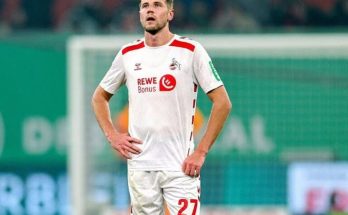Borussia Dortmund’s decision to part ways — or at least to publicly sour relations — with Nico Schlotterbeck feels like a seismic rupture rather than a mere transaction. After weeks of simmering discontent, leaking rumors, expectation mismatches, and tactical brinkmanship, the club finally drew a red line: Schlotterbeck will no longer be part of their future in the way many believed he would. The fallout is already dividing opinion, unsettling the dressing room, and leaving Dortmund teetering on a dangerous precipice midseason.
From the start, Schlotterbeck looked like exactly the kind of defender BVB had been missing. A left-footed center-back with both physical presence and composure in possession, he seemed destined to anchor their backline for years. He arrived in 2022 from Freiburg on a contract running until 2027. Over the past seasons, he grew in influence: vocal in defense, increasingly a leader in build-up, and often among the most reliable performers even when the team around him wavered. But the stability he brought came at a cost — namely, expectations, comparisons, and internal tensions.
The rupture wasn’t born overnight. For months the relationship had been strained. Dortmund reportedly floated the intention to nearly double his salary — from his current wage to somewhere between five and six million euros. Yet negotiations stalled. At the same time, voices around the club began to question whether investing that much in a single defender made sense, especially if the club failed to secure consistent European competition. Rumors swirled of other suitors waiting in the wings, which only compounded the pressure. As confidence wavered, trust eroded.
Eventually, the cracks gave way. The club’s position hardened: either Schlotterbeck would agree to terms that aligned with Dortmund’s broader financial and competitive strategy, or he would be cast aside as expendable. No matter how justified from a business or tactical standpoint, it was a gamble. Schlotterbeck responded by going quiet — shutting down social media engagement, refraining from fueling rumors, and focusing solely on his rehabilitation from injury.But the damage was done. To many fans and teammates, it felt as though Dortmund’s leadership had drawn an existential line through one of their own.
The timing is brutal. Schlotterbeck’s contract wasn’t expiring imminently, so this wasn’t a simple “let his contract run down” decision. Rather, it was a choice to push him away while still under contract — a move that signals a loss of confidence both in his loyalty and his desire to stay. The optics are stark: a club tearing up trust in midstream, even as it still clings to the void he leaves behind. Internally, morale must be fracturing. Players don’t like to see one of their pillars publicly shunned, especially a teammate who has demanded nothing but professionalism even in awkward moments.
On the tactical front, Dortmund is dangerously exposed. To lose Schlotterbeck is to lose more than a defender: he was a central stabilizer, often the last line of communication between defense and midfield, the kind of player who anticipates threats and offsets volatility. His absence forces the coaching staff into improvisation. Can Emre Can, Waldemar Anton, or Ramy Bensebaini reliably replace him? Can a back three or rotated central pairing absorb the weight of European nights and domestic pressure? That’s a formidable test.
The club’s leadership will try to frame this as strategic, not punitive. They may argue that overcommitting to one player restricts flexibility, that in renegotiating they were seeking equilibrium, that the market is fluid and loyalty has practical limits. And there is some logic in that: few teams can afford to anchor themselves to singular demands. But the manner in which Dortmund executed this pivot will haunt them. It raises questions about their values, their respect for internal culture, and whether they are willing to lose what they once viewed as foundational in order to preserve financial or structural coherence.
Meanwhile, Schlotterbeck maintains the moral high ground. In his silence, he projects dignity. He has become a specter — impossible to fully dismiss, too valuable to forget. As Dortmund’s season progresses, every defensive lapse, every late goal conceded, every moment of instability will be measured against “what might have been had Schlotterbeck stayed.” If the club stumbles, this internal divorce will become legend — a cautionary tale about how not to treat your anchors.
For the fans, the shock is immediate. They see a defender who bled for the crest, who defended through slumps, who defended in nights of triumph and nights of despair, cast aside in his prime. It undermines the narrative of loyalty, identity, and ambition that a club like Dortmund prizes. In forums and meta discussions, fans are already lashing out, accusing the board of treating the team as a commodity, of neglecting the human side of football, and of destabilizing what was once a fortress. And they’re not wrong.
Of course, not all reactions are negative. Some voices in the hierarchy will argue that this is a brutal but necessary cleansing. That too many concessions to player egos have lopped away flexibility. That the club must preserve its ability to reconfigure, to adapt, to not be held hostage by one figure’s demands or status. Some will call it vision; others will call it hubris. History will judge.
In the short term, Dortmund’s season is a minefield. They must fill the void defensively, keep their European ambitions alive, and maintain squad harmony even as one of their own becomes a walking grievance. If they can navigate the rest of this season without imploding, they might rationalize this as a painful reset. But if the defense buckles, if they trip over cumulative errors, this separation will haunt them. It will not just be about losing a star defender — it will be about how the club gambled its identity, in midseason, for the sake of discipline, and perhaps emerged weaker for it.
It is, in the truest sense, a tear-up test: a club’s willingness to burn a foundation to see whether the rest can still hold. If Dortmund survives it, they’ll emerge with renewed clarity. If not, this moment — the breaking of Schlotterbeck — may be remembered as the day the mighty club cracked from within.



